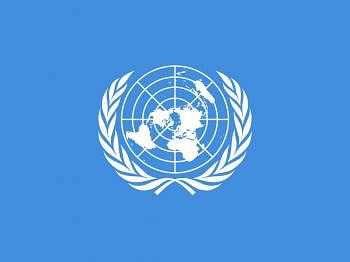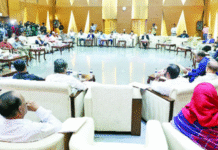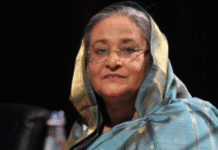
The recent meeting of the United National Human Rights Council working group discussed allegations of enforced disappearances in various countries around the world. Two incidents of enforced disappearances in Bangladesh were raised during the discussions. The five-day meeting was held from last Monday to Friday in Geneva. The working group will submit a report in this regard at the UN Human Rights Council session in June where the issue may be discussed.
While concern was voiced at the UN Human Rights Council working group meeting about the enforced disappearances in Bangladesh, the Bangladesh government has taken a contrary stand. Representatives of the government at various committee meetings in Geneva have categorically maintained that there was no such thing as ‘enforced disappearances’ in Bangladesh’s law. The government representatives, particularly from 2016, have strongly held this stance at the UN human rights committee meetings.
Since 2013 the UN working group concerning enforced disappearances has been seeking permission to visit Bangladesh. They had last asked for such permission in April last year, but received no response
According to the UN Human Rights Council website, the matter of 600 incidents of enforced disappearances in 36 countries was raised during the working group meeting. Two instances of enforced disappearance in Bangladesh were also mentioned. One was concerning allegations of a certain Ansar Ali being abducted by armed government forces on 18 April 2012 in Dhaka. The other was concerning allegations of a certain Saidur Rahman Kazi being picked up by police on 5 April 2017 from Jashore municipality park. The committee has raised the issue of these two disappearances with the Bangladesh government.
The report on the UN Human Rights Council working group’s website said that the working group had informed the Bangladesh government about the lawyer of blogger Asaduzzaman Noor (Asad Noor) being threatened and harassed.
Concerning enforced disappearances in Bangladesh, the working group observed that they were concerned at the continued occurrences of such incidents over the past few years. The group was regularly receiving complaints in this regard, many of which involved members of the political opposition. The working group also expressed concerning about the apparent culture of impunity concerning these disappearances.
Since 2013 the UN working group concerning enforced disappearances has been seeking permission to visit Bangladesh. They had last asked for such permission in April last year, but received no response.
Former chairman of the National Human Rights Commission, Mizanur Rahman, speaking on this matter to Prothom Alo on Saturday said that a report on the discussion of the working group concerning enforced disappearances will be submitted at the Human Rights Council session. Bangladesh’s stand in this regard will be made public and will be discussed. However, there is no scope for any legal action in this regard. It is not in the jurisdiction of the UN Human Rights Commission to take any action to improve the human rights situation of an independent and sovereign country.









